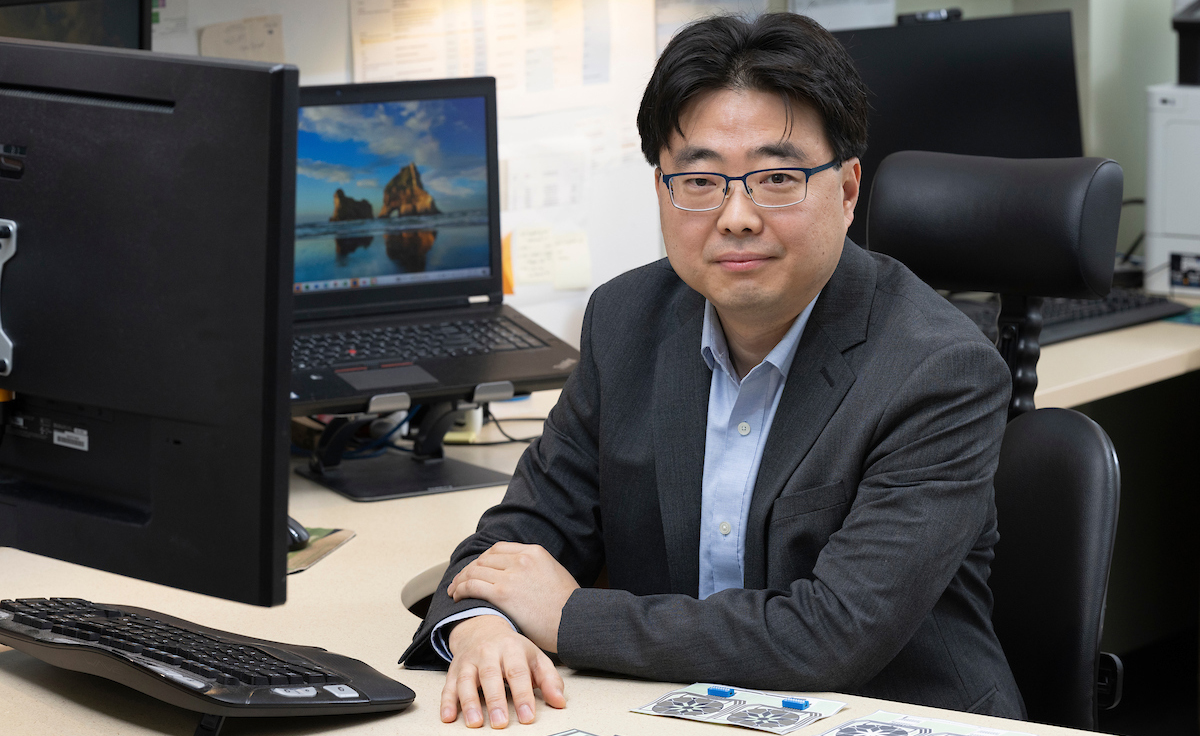Binghamton University Professor Seokheun “Sean” Choi has received a $550,000 grant from the National Science Foundation to develop a manufacturing process that integrates bacteria-fueled biobatteries with flexible electronics using 3D printing technology.

The research aims to address compatibility issues between microbial fuel cells and solid-state electronics. “The problem with microbial fuel cells as a power source is that liquid for bacterial material is not compatible with solid-state electronics. Also, living bacteria cannot survive many extreme microfabrication processes,” said Choi, who works in the Department of Electrical and Computer Engineering.
Choi plans to use dormant bacterial spores that can survive harsh manufacturing conditions and remain viable for extended periods. When conditions become favorable, the spores germinate and begin generating power. This approach builds on his previous work with ingestible biobatteries.
The professor believes microbial fuel cells offer advantages over other energy-harvesting methods. “There are many different types of energy-harvesting techniques, like mechanical-, solar- or radio frequency-based,” he said. “I still believe that microbial fuel cells are the most suitable, because it’s a living material. They can self-maintain, self-heal and adapt to environmental changes.”
The research connects to Choi’s broader work on environmentally friendly electronics for Internet of Things applications, including single-use sensors for food packaging, agriculture, and medical devices. He has also received separate NSF funding to develop biodegradable papertronics. “We need to use an energy-harvesting technique so the electronics are functioning for a long time without batteries and never will be electronic waste because of power-source issues,” he said.
Source: binghamton.edu

